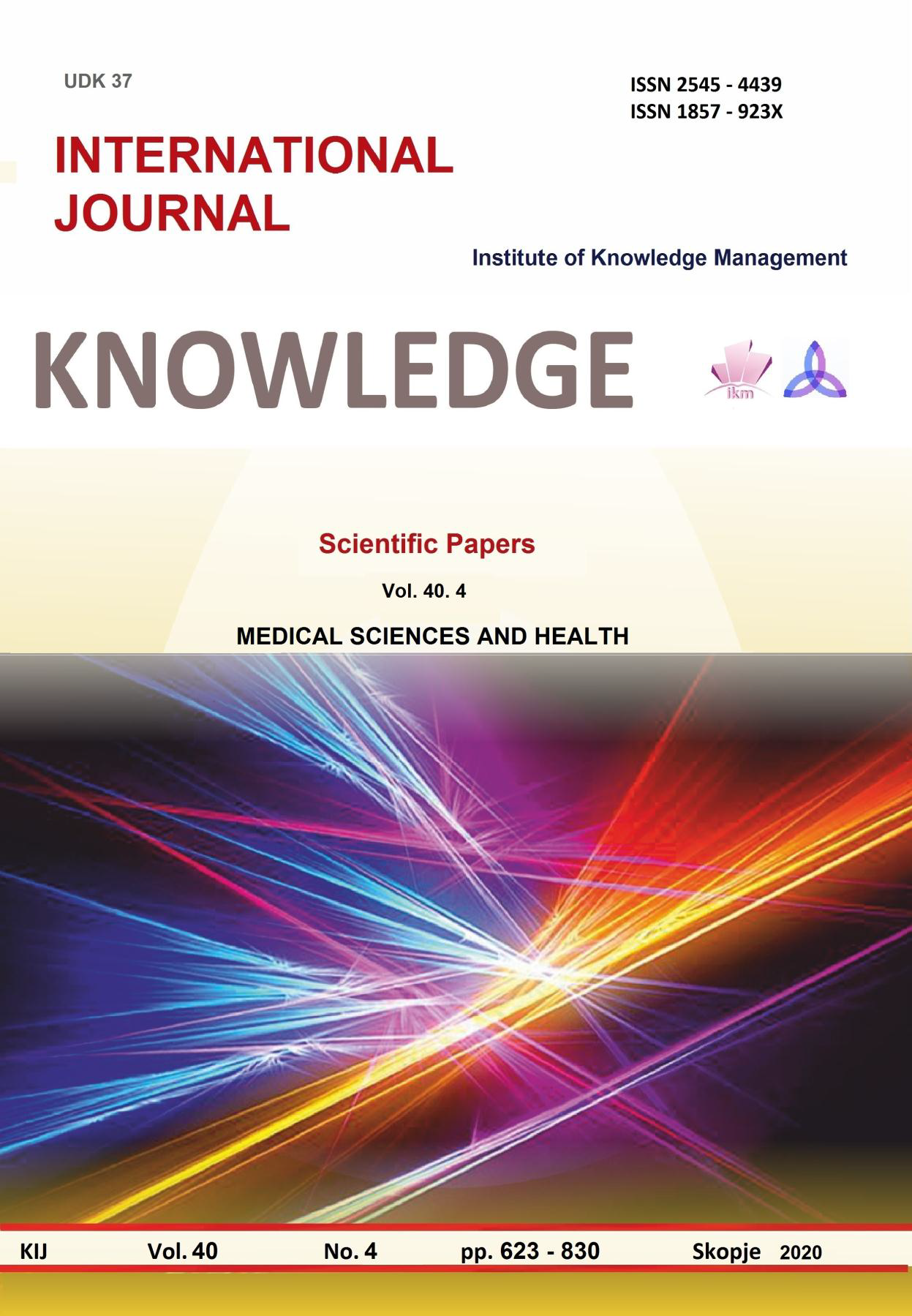THE IMPACT OF IONIZED WATER SUPPLEMENTED WITH GLUTATION AND VITAMIN C DURING ACUTE HYPERTHERMIC EXPOSURE ON THE ACTIVITY OF THE SUPEROXID DISMUTASE IN THE BLOOD SERUM AT WHITE LABORATORY RATS
THE IMPACT OF IONIZED WATER SUPPLEMENTED WITH GLUTATION AND VITAMIN C DURING ACUTE HYPERTHERMIC EXPOSURE ON THE ACTIVITY OF THE SUPEROXID DISMUTASE IN THE BLOOD SERUM AT WHITE LABORATORY RATS
Author(s): Majlinda Ademi, Mije Reçi, Ilbert AdemiSubject(s): Social Sciences
Published by: Scientific Institute of Management and Knowledge
Keywords: Ionized water; hyperthermic stress; glutathione; vitamin C; superoxide dismutase.
Summary/Abstract: Ionized or reduced water (ERW), also known as "alkaline water", means electrochemically activated water with a pH greater than 7. Namely, the ERW besides the alkaline pH also contains many reducing traits, ie. has remarkable redox properties. The aim of our research is to determine the impact of ionized water by adding enzymatic and non-enzymatic antioxidants, glutathione and vitamin C, during hyperthermic stress, on the activity of superoxide dismutase. The experiment performed on a white laboratory Wistar rats, a female sex, weighing 180-220 g, young rats, divided into three groups of 15 individuals. Oxidative stress was caused by acute hyperthermic exposure at 41 ̊C. The first group is the control group (KPM) treated with tap water, the second group is treated with ionized water (TAM), and the third group with ionized water with added glutathione andvitamin C (TAD). The duration of treatment lasted 21 days.Acute hyperthermic exposure on the 21st day in the KPM and TAM group significantly (p <0.001) reduced SOD activity compared to results obtained for the same enzyme activity on the 14th and 7th dayof treatment.A deviation from this general conclusion is the group treated with enriched ionized which shows a significant difference in SOD activity between day 7 and day 21 against the statistically significant difference (p <0.01) registered in the same group only in the period of 14th to 21st day of the treatment.The results of the analyzes obtained on the 7th day of the study indicate statistically insignificant differences in SOD activity in the comparison made between the two combinations of groups of a total of three included in the experiment.The case of the comparison of SOD activity between the groups KPM -TAM on the 14th day and KPM -TAM on the 21st day of treatment is similar.An analogue comparison between the remaining pairs of groups performed on 14th as well on 21st day showed a statistically significant difference in SOD activity between the comparison groups.Treatment with ionized water, without added antioxidants or a combination thereof, did not lead to significant changes in serum SOD activity during the absence of high ambient temperature.In conditions of very high concentrations of free radicals, the damage on the molecular machinery required for the induction of these antioxidant enzymes in combination with their influence on the oxidative damage to the protein structure of the antioxidant enzymes themselves would result in a reduction in antioxidant activity, as is the case with SOD in our research.
Journal: Knowledge - International Journal
- Issue Year: 40/2020
- Issue No: 4
- Page Range: 747 - 753
- Page Count: 7
- Language: English

